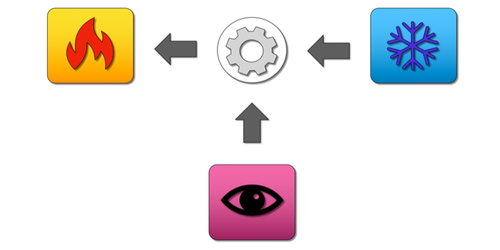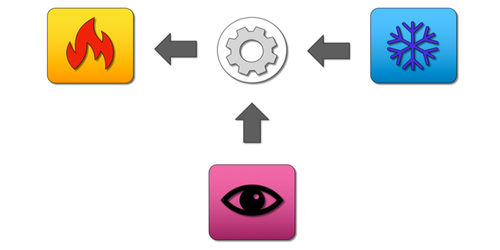Refrigeration by Quantum Measurements
In Maxwell’s famous thought experiment, a demon operates a door between two gas reservoirs, collecting hotter particles in one and colder particles in the other. As we now know, the demon needs information to sort the particles, so the second law of thermodynamics is not violated. Similarly, quantum heat engines rely on information to operate a feedback control loop that steers the heat. Now, Michele Campisi at the University of Florence, Italy, and colleagues show theoretically that quantum refrigeration can be fueled by measurements alone, without exerting feedback control. Such a scheme is more tolerant of noise and may therefore be practically achievable.
The researchers considered a two-stroke two-qubit quantum engine in which one qubit is coupled to a hot bath and the other to a cold bath. In the first stroke, a physical quantity associated with the two-qubit system is measured in a way that alters the system’s state. In the second stroke, the energy exchanged during the measurement is released from each qubit to its bath.
Upon analyzing the overall energy flow in this setup, the team finds that, for a random choice of the measured quantity, heat most likely flows from the measurement apparatus to both baths. However, calculations also reveal up to a 50% chance that heat flows from the cold to the hot bath as the measurement injects energy. This quantum-measurement cooling occurs as long as the measured quantity probes qubit states that are entangled. The team says that this approach to quantum refrigeration could be implemented with existing solid-state superconducting qubits.
This research is published in Physical Review Letters.
–Nicolas Doiron-Leyraud
Nicolas Doiron-Leyraud is a Corresponding Editor for Physics based in Montreal, Canada.





